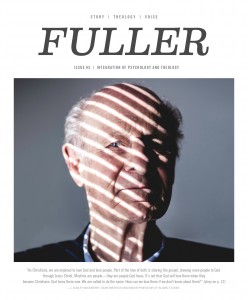
“The theological task as we have come to know it in the West is facing a transformation of its cartography and of its historical archives. The territory, texture, and phenomena of Christian practice . . . are shifting to include a theological self-representation coming out of decolonial theological categories that neither necessarily abandon nor depend on Western culture but instead seek autonomy of thought.”
+ Oscar García-Johnson, associate dean for Fuller’s Centro Latino and professor of theology and Latino/a studies, in Theology Without Borders: An Introduction to Global Conversations, coauthored with William Dyrness, professor of theology and culture. Pictured is a world globe made with precious materials presented by Dean Emeritus Dudley Woodberry for the 50th anniversary of the School of Intercultural Studies. See the ceremony of its dedication here.
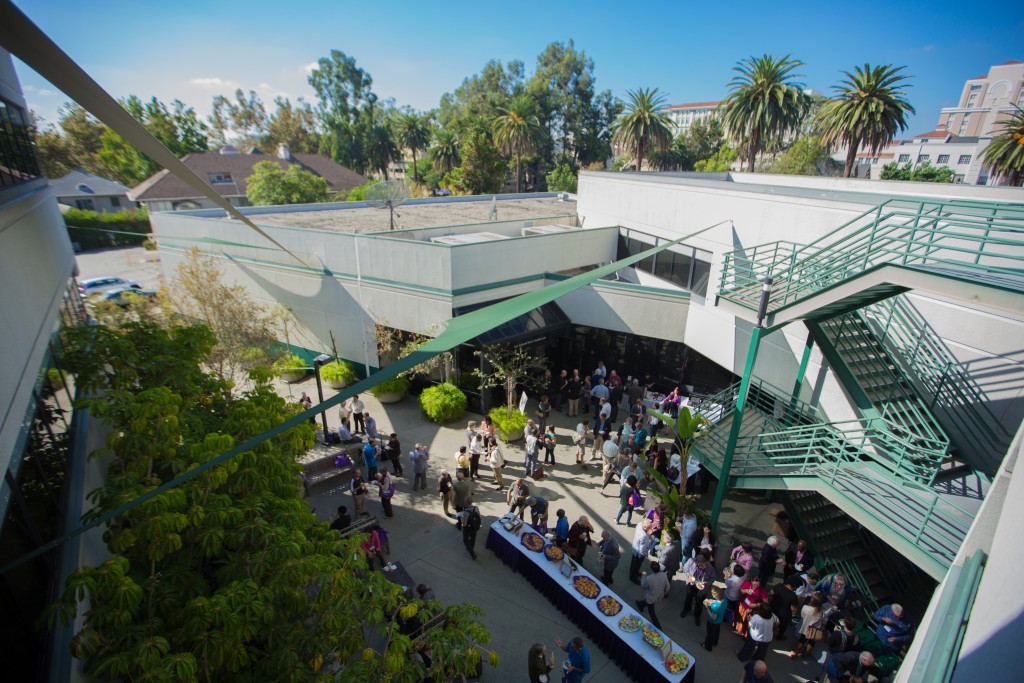
+ The School of Intercultural Studies celebrated its 50th anniversary in 2015, including a panel 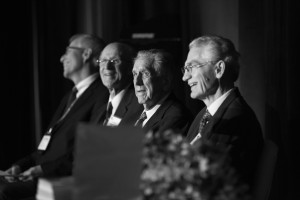 (right) of previous deans Douglas C. McConnell (2003–2011), J. Dudley Woodberry (1992–1999), Paul E. Pierson (1980–1992), and Sherwood G. Lingenfelter (1999–2003). Learn more about the 50th anniversary here.
(right) of previous deans Douglas C. McConnell (2003–2011), J. Dudley Woodberry (1992–1999), Paul E. Pierson (1980–1992), and Sherwood G. Lingenfelter (1999–2003). Learn more about the 50th anniversary here.
“The last fifty or sixty years have seen a radically changed world, and many of the older patterns are no longer relevant or even possible. On the other hand, the Church has grown enormously in the former ‘mission fields’ since 1945. We are seeing new personnel as well as new approaches to mission today. The Christian mission remains the same, but our context is very different, . . . [and] that fact calls us to sensitivity to each culture, hard thinking, and openness to the creativity of the Holy Spirit.”
+ Dean Emeritus Paul E. Pierson, second from right, from his book The Dynamics of Christian Mission.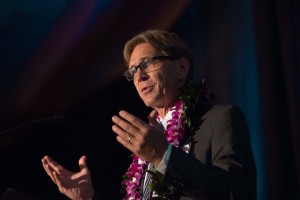
“Not only does Christian theology point to cooperation and partnerships in mission, but the size and complexity of global concerns to which the church should speak requires this partnership. No one individual, church, or even national church can solve the major issues of violence and human trafficking, nor can they alone reach the mass of unreached people in the world. The missio Dei requires that we work together as the body of Christ, not building personal kingdoms, but looking forward in our ministry to the city built by God.”
+ Scott W. Sunquist, dean of the School of Intercultural Studies, from his book Understanding Christian Mission: Participation in Suffering and Glory.
“The Christian mission in the coming years will become multidirectional, from everywhere to everywhere. This reflection demands us to discard the old positions and habits of thought formed within colonial frameworks.”
+ Moonjang Lee, senior pastor of Doorae Church, South Korea. Hear his lecture on Korean perspectives of Christian mission here.
“A three-dimensional understanding of the reality of missions suits better our globalizing understanding of reality. This linear understanding that differentiates between sending countries and receiving countries has been replaced by a more dynamic polyhedral network of multiple relationships, in which all send and all receive at the same time under the lordship of Jesus Christ.“
+ Pablo Deiros, vice president at International Baptist Theological Seminary, in Buenos Aires, Argentina. Hear his lecture on a Latin American perspective of eschatology here.
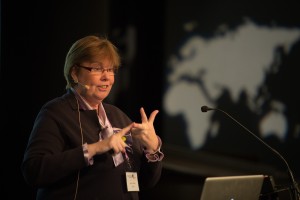 “I see within the church a preoccupation with power, so there is a call to let go of our power and control and to recover the redemptive power of the gospel message of the cross that we are challenged to accept as a minority. . . . We must accept the shift that we are no longer the center of Western Christianity; we in Europe are a part of the periphery of global Christianity, and this calls us to strengthen our attitude of waiting on God in deep humility.”
“I see within the church a preoccupation with power, so there is a call to let go of our power and control and to recover the redemptive power of the gospel message of the cross that we are challenged to accept as a minority. . . . We must accept the shift that we are no longer the center of Western Christianity; we in Europe are a part of the periphery of global Christianity, and this calls us to strengthen our attitude of waiting on God in deep humility.”
+ Anne-Marie Kool, associate professor of missiology at Baptist Theological Academy in Budapest, Hungary. Hear her reflections on changes in missiology in European contexts here.
“If God is opening new horizons by radically shifting Global Christianity, what is the Holy Spirit speaking to us, and what is the possibility? I suggest ‘democratization’ is the word that we should play. The vision of mission in our time can be summarized as democratization—or even liberation—of mission. Democratization is a theological concept referring to a process through which a privileged status or call initially granted to a small group of selected people is eventually expanded to include the whole community of God’s people. This idea of democratization has an important agenda for revisioning mission.”
+ Wonsuk Ma, executive director at the Oxford Centre for Mission Studies in Oxford, England. Hear his lecture on globalization and theological education here.
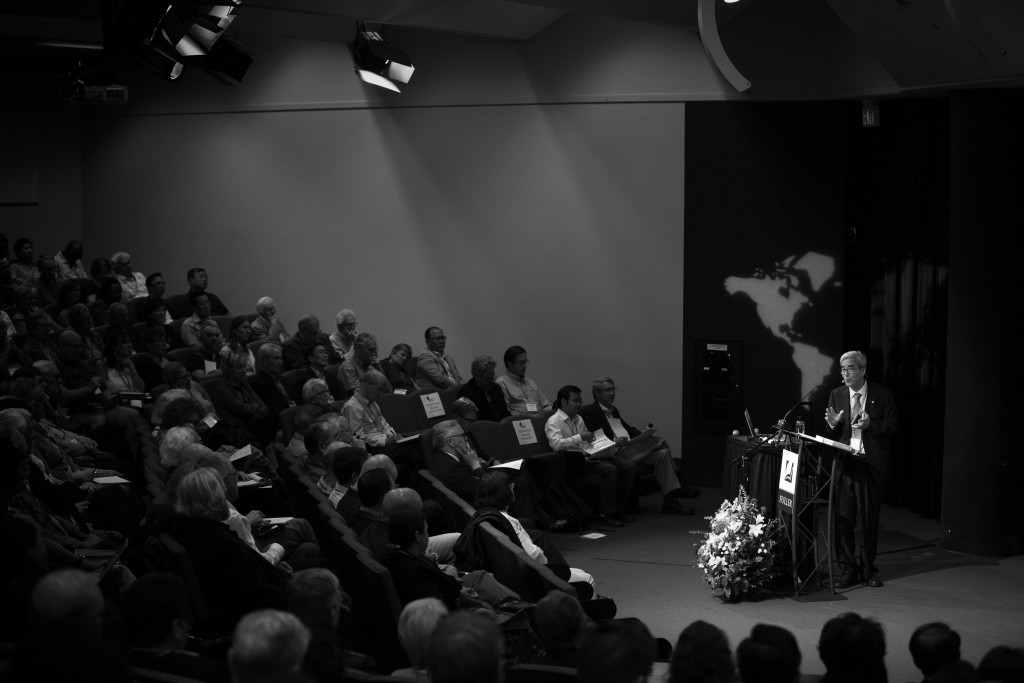
“To affirm that the Reign of God has cultural manifestations is to recognize that there are many cultures. The Reign of God does require one to choose which cultural vision has priority. It sensitizes one to the importance of recognizing that cultures provide meaning for individuals and that one’s research or therapy must respect that plurality.”
+ Alvin Dueck, Distinguished Professor of Cultural Psychologies, from his book Between Jerusalem and Athens: Ethical Perspectives on Culture, Religion, and Psychotherapy.
“Since we live in an age when economy and politics transcend national borders, it stands for us to ask what the scope of our ethical responsibility is now more than ever before. . . . We must yield to the plurality of perceptions and experiences. A genuinely globally minded church must incorporate a diversity of principles and views.”
+ Kyong-Jin Lee, assistant professor of Old Testament studies, from her Fuller Forum lecture on globalization and the book of Esther. Watch her entire lecture here.
“It’s important for us to recognize the positions of privilege we’ve come from. We may not have enacted violence in certain situations, but we may have benefited from it. What privilege do I have as a white woman? What privilege do I have as an academic? We need to be living out a recognition of that so that we can say, ‘join me in this’ and so that we’re raising each other up. What parts of my privilege can I give to you? What parts of my privilege are unearned and I can let go of?”
+ Cynthia Erikkson, associate professor of psychology, reflecting on humanitarian aid, mental health, and privilege in a panel discussion for Scott Sunquist’s installation as dean. Listen to the entire panel here.
“In the light of religious resurgence, complex flows of migrants, capital and technology, and the dramatic growth of Christianity in some areas and its retraction in others, we believe we are in the midst of a massive re-formation of the Christian church at the global level. . . . The way forward in a globalizing world, we believe, is to acknowledge this diversity of Christian difference.”
+ Bill Dyrness, professor of theology and culture, and Veli-Matti Kärkkäinen, professor of systematic theology, in their coedited volume Global Dictionary of Theology, a five-year project presenting scholarship from Christian theologians from around the world.
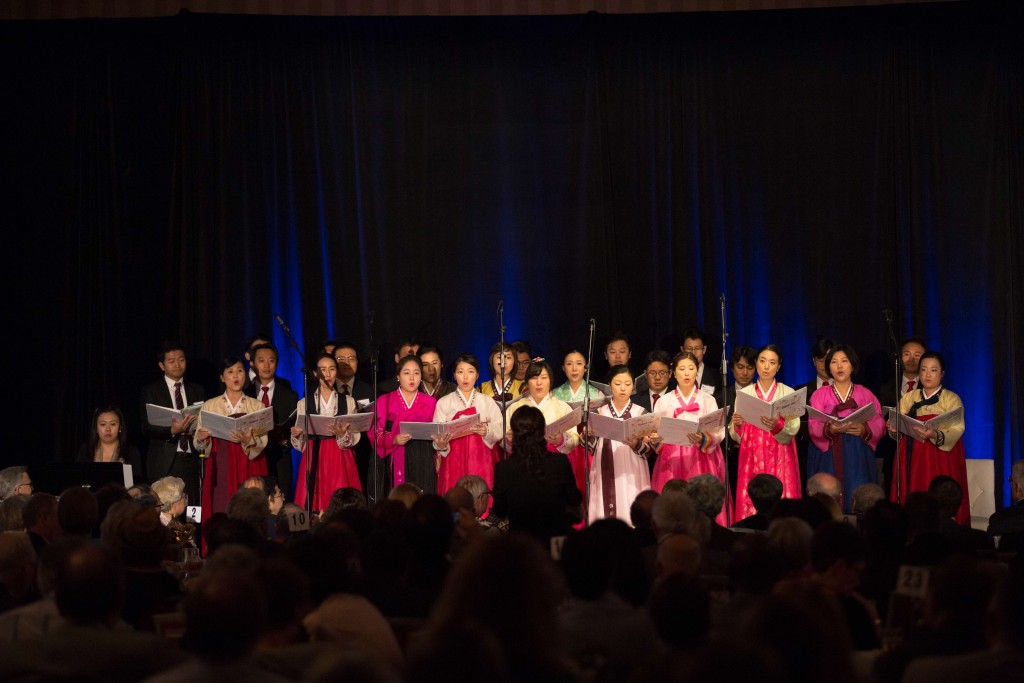
“The future of Christian theology lies in global sensitivity: theologizing can no longer be the privilege of one culture, neither Western nor any other. Systematic theology is fast becoming a collection of various voices from all over the world, often a cacophony of dissonant sounds. What would a genuinely African ecclesiology look like? Or an Asian one? Or Latin American? . . . Classical Western theology may benefit in an unprecedented way from the encounter with these contextual and global voices. At its best, this dialogue may become an ecumenical exchange of gifts.”
+ Veli-Matti Kärkkäinen, professor of systematic theology, in his book An Introduction to Ecclesiology, part of his series on systematic theology from a global perspective.
“Jesus’ missionaries have to learn that they can be agents of healing only as they themselves are healed by others—agents of social, political, economic, and cultural transformation only as they themselves are transformed socially, politically, economically, and culturally. They not only bear the truth as they come as missionaries but learn the truth in their missionary encounter. . . . We must learn there is no safe way of serving or encountering Jesus. His touch leaves no one person, no culture, no politics, no economics unchallenged or unchanged. That is what it means for him to be Lord.”
+ Tommy Givens, assistant professor of New Testament studies, reflecting on Christ sending out his missionaries, in a panel discussion for Scott Sunquist’s installation as dean. Listen to the entire panel here.
Further Reading
Understanding Christian Mission: Participation in Suffering and Glory
Scott W. Sunquist (Baker Academic, 2013)
The Unexpected Christian Century: The Reversal and Transformation of Global Christianity, 1900–2000
Scott W. Sunquist (Baker Academic, 2015)
Exploring World Mission: Context and Challenges
Bryant Myers (World Vision International, 2003)
The Dynamics of Christian Mission: History through a Missiological Perspective
Paul Pierson (William Carey International University Press, 2009)
The Great World House: Martin Luther King, Jr., and Global Ethics
Hak Joon Lee (Pilgrim Press, 2011)
Available Classes
Global Christian Worship and Witness with Roberta King
American Christianity in a Global Historical Context with Nathan Feldmeth
Global Pentecostalism and Mission with Amos Yong
God and Globalization with Hak Joon Lee
The Modern Church in a Global Historical Context with Mel Robeck
Modern Theology in a Global Context with Veli-Matti Kärkkäinen
Christianity in China, Korea, and Japan with Scott Sunquist

